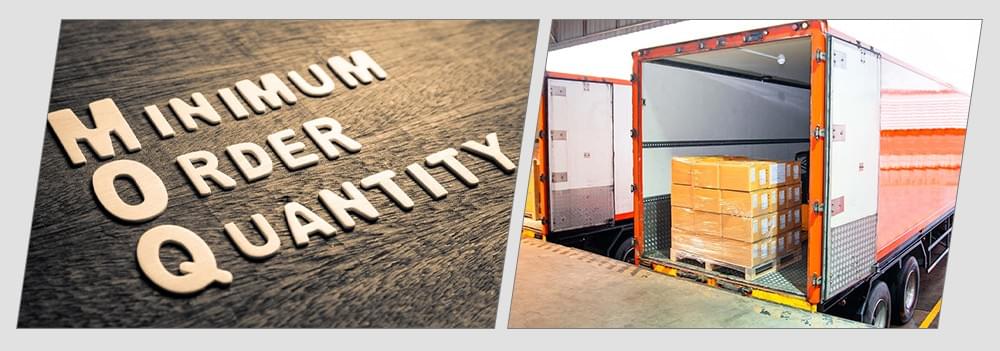Minimum Order Quantity (MOQ) is a critical concept in manufacturing and supply chain management that refers to the minimum quantity of products or materials that a supplier is willing to produce or sell at one time. MOQ plays a significant role in determining production feasibility, pricing, and inventory management for both manufacturers and buyers. In this blog, we delve into the details of MOQ, its implications, and factors to consider when navigating minimum order requirements.
Importance of Minimum Order Quantity
- Production Efficiency: MOQ helps manufacturers optimize production efficiency by setting a baseline quantity that aligns with their production capabilities and cost structures. Producing larger quantities often reduces per-unit costs through economies of scale.
- Supply Chain Planning: For buyers and retailers, understanding MOQs is essential for effective supply chain planning. MOQs influence inventory management, lead times, and order frequency, impacting overall operational efficiency.
- Cost Considerations: MOQ directly affects pricing negotiations between manufacturers and buyers. Bulk orders typically command lower unit costs, allowing businesses to achieve better profit margins or competitive pricing in the market.

Factors Influencing MOQ
- Production Capacity: Manufacturers set MOQs based on their production capabilities, machinery capacity, and workforce availability. Larger orders maximize utilization of resources and minimize setup costs per unit.
- Material Costs: MOQs are influenced by material costs and availability. Suppliers may require minimum quantities to justify purchasing raw materials in bulk or to meet supplier MOQs from upstream partners.
- Economies of Scale: Larger orders enable manufacturers to benefit from economies of scale, lowering production costs and offering competitive pricing advantages to buyers.
- Logistics and Transportation: MOQs can be influenced by logistics considerations, such as container load requirements for international shipping or truckload quantities for domestic transportation. Consolidating shipments reduces per-unit transportation costs.

Challenges of Minimum Order Quantity
- Inventory Management: High MOQs may lead to excess inventory and tie up capital, especially for slow-moving products or seasonal items.
- Financial Risk: Committing to large MOQs entails financial risk, particularly for smaller businesses with limited cash flow or storage capacity.
- Flexibility and Adaptability: MOQs may limit flexibility in responding to changes in market demand or customer preferences, requiring businesses to forecast accurately and plan inventory accordingly.

Strategies to Navigate Minimum Order Requirements
- Negotiation: Engage in open dialogue with suppliers to negotiate MOQs based on long-term relationships, volume commitments, or strategic partnerships.
- Consolidation and Aggregation: Explore opportunities to consolidate orders across product lines or collaborate with other buyers to meet MOQ thresholds collectively.
- Forecasting and Planning: Invest in accurate demand forecasting and inventory planning to optimize order quantities and minimize excess inventory.
Conclusion
Minimum Order Quantity (MOQ) is a fundamental aspect of manufacturing and procurement that impacts production efficiency, pricing, and supply chain management. By understanding the factors influencing MOQs and implementing strategic approaches to navigate minimum order requirements, businesses can optimize procurement strategies, enhance operational efficiency, and achieve sustainable growth in competitive markets. Flexibility, collaboration, and foresight are key to effectively managing MOQs and unlocking value for both manufacturers and buyers in today's dynamic business environment.

